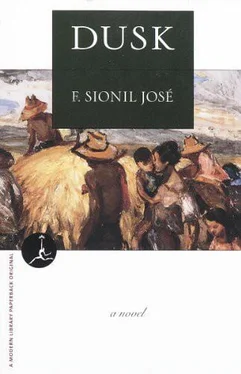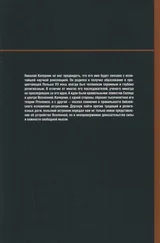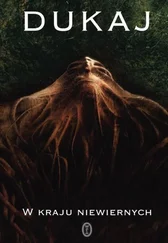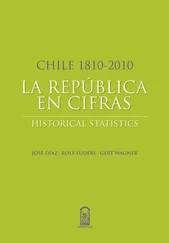He wanted desperately to rationalize, to absolve the general. He was young, and because of his youth he was a poor judge of men.
He woke up in the chill dawn, the grass at his feet wet with dew. The trail was near the river. The sharp rise of hillside was studded with butterfly trees in bloom. Quickly, he remembered again with some relief that the general did not order him shot — just left behind to find his way back. He rose and turned around — the cool majesty of the mountains before him and below, more of the low hills which they had passed in the night. In a while, sunrise — the mountains were blue, the peaks covered with mist and beyond the haze, the pointed ridge below which the pass cut through.
They must be over the pass, the soldiers who emerged faceless out of the darkness. A new day, perhaps a new life. Why should an impetuous young man and this fleeing president of a country riven by jealousies and personal hatreds matter to him?
Yes, just as he had told the Cripple, why should I care for others who are not members of my family, who have not done anything for me? I have this piece of land which I have cleared. My duty is not to this nameless mass you call Filipinas. No country can claim my time, my loyalty. And as for God — I served Him well by doing my fellowmen no harm, but instead brought them health when they came to me with their bodies racked with pain. And for all these, my father was punished, I was punished. I am not going to test fate again.
The Cripple had looked sadly at him, then spoke, the words taking shape like jewels shining, glittering, impinging into his consciousness how easily he had been seduced by self-preservation: “If there is no country as such or as you know and recognize, then in your mind you must give it its boundaries. Do this because without this country you are nothing. This land where you stand, from which you draw sustenance, is the mother you deny. It’s to her where your thoughts will go even if you refuse to think so, for it is here where you were born, where your loved ones live, and where in all probability you will all die. We will love her, protect her, all of us — Bisaya, Tagalog, Ilokano, so many islands, so many tribes — because if we act as one, we will be strong and so will she be. Alone, you will fall prey to every marauder that passes by. I am not asking that you love Filipinas. I am asking that you do what is right, what is duty …”
“And in the end I will be betrayed as others have been?”
“There wall always be betrayals because we are men, not angels. They who betray — no pile of money, no shining title or other forms of adulation by which they were bought can assuage the self-hate, the sense of inferiority and sickening weakness which will corrode their very bones. They know this and there is no greater punishment than this self-knowledge. They cannot end it with suicide, for they know that such an act is the final push that bogs them into the slime of their own creation.”
Was he rejected because he was Ilokano, or was it simply because the general did not know him? He had given all the incontrovertible proofs of his identity — not things that one could touch, or feel, but the account of what he had seen, what he knew. Had he been a spy, he would not have ventured this far, and alone. Again, the Cripple came to mind. He would understand.
It would be a long walk back to the plain, to Cabugawan. He had slept soundly and the tiredness in his legs seemed to have gone. He felt hungry again; it should not be difficult to calm that hunger and in the first stream that he had passed, he drank his fill. Nearby were papayas with fruit. The birds had eaten into the very ripe ones; he did not like them too ripe, for these often harbored tiny worms. He picked two and walked on; along the way, there would be guavas, too, or tree mushrooms.
He slept briefly, then woke up, the mountain breeze caressing his face. He brought out the journal — stained in places — and looked at his notations; it was ten days since he had left Cabugawan — it was now December, the first day of the month, and tomorrow would be Saturday.
He wet the pencil tip with his tongue, a habit that never left him, and wrote:
Duty comes in many forms; at times duty to country may conflict with duty to family. Yet, with a lucid mind the guises can be torn away and in the end, duty becomes but one, and that is duty to value justice above everything — to do what is right not because someone ordains it, but because the heart, which is the scat of truth, decrees it so.
Duty. Justice. All his life he had never really given much thought to these, or to the possibility of his being really free. He was concerned with being secure, with being part of the structure that the friars had built, because wherever he went, he saw that they did not even have guns. Their being white marked them as superior beings, for how else could they have conquered this land, how else could they have written all those books and understood the mysteries of God? For as long as he was brown and Indio, he was marked an inferior man, destined to be no more than an acolyte.
All this ignominy had been wiped away — the Indio had fought the white man and won, but how fragile, how short-lived that victory had been.
It would be a hellish trek out of the Ilokos, and ahead of him, now, was a long march out of this towering ring of mountains. Closing his eyes, in the black pit of memory, his past came instantly alive, ever present and bright, as if it were only yesterday that he had left Po-on. God forgive me for this one conceit; I am not just a healer, but in a way, I was Moses, too. He had read the Bible and seen the world in the Magnificat: “He hath put down the mighty from their seats, and exalted them of low degree. He hath filled the hungry with good things and the rich He hath sent away empty …”
He closed the journal and turned to the narrow plain below, and there, in the last light of day — the pursuers in even file. He started counting quickly those that he could clearly see. A hundred, two hundred. Perhaps five hundred men, their horses loaded with provisions. By nightfall, they would be at the pass. How could they have marched so fast? They would get to Del Pilar before morning if they marched through the night.
He should no longer care, why should he? He had come to warn them, help them, and the general had rejected him. Let him and his men and even the president suffer the fate they had fashioned for themselves. He could save himself easily — he knew where to detour to a distance away from their line of march, and he would then be free to return to Cabugawan. There was all the time to do that in the safety of the night.
O Apo Dios, You who know everything and see everything. You will not begrudge me if I seek safety so that I can be with my loved ones. I have tried to give these soldiers all that this humble self can give but they did not trust me. Surely, I will do no wrong to the Cripple, to Don Jacinto, and most of all, to my own self-respect if I leave them to their fate. Surely, O Apo Dios, You will understand.
He turned to the darkening and disheveled landscape around him, the mountains that bore down on him with their silence and their gloom. He listened to his hurried breathing, to the thunder in his heart, to the depths of himself crying, yes, I do no wrong, but I must prove in flesh and in spirit that I am Indio, I am one of them!
The night came quickly, and though he was already up the incline, following the trail which laced the mountainside, still the pass seemed as distant as the stars that glimmered above. What sublime obstinacy was it that demanded he should now persist? He consoled himself; at night, the Americans might not march, not in this jumble of trees and rocks where they could be ambushed easily, that they were — like the Spaniards and the Guardia — afraid of the dark and the Indio phantoms that lurked in it.
Читать дальше












